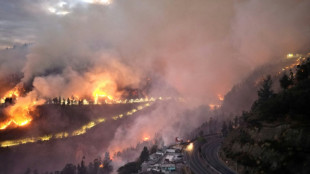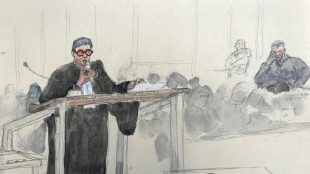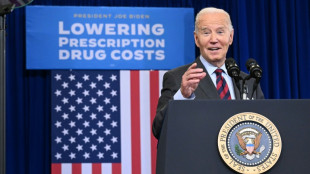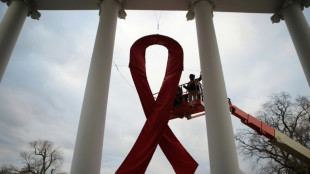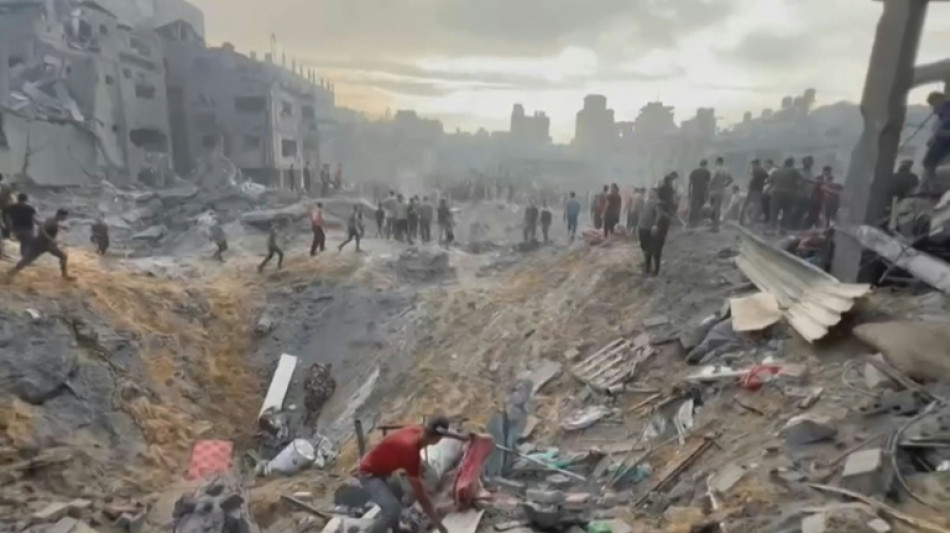

Gaza camp blast kills dozens as Israel strikes top Hamas militant
Huge explosions ripped through Gaza's largest refugee camp on Tuesday, leaving dozens dead, in strikes the Israeli army said killed a Hamas commander involved in the October 7 attacks.
Wails filled the dusty air as volunteers clawed through the concrete blocks and twisted metal at the Jabalia refugee camp in northern Gaza in a desperate search for bodies and survivors, with AFP video footage showing at least 47 corpses being recovered.
Hamas' armed wing, the Ezzedine al-Qassam Brigades, had no immediate comment on the claim, but quickly vowed to turn Gaza into a "graveyard" for Israeli troops.
Hamas-run Gaza's health ministry gave an initial toll of more than 50 dead and 150 wounded, but said dozens more were likely buried under the rubble, denouncing what it called "a heinous Israeli massacre" at the camp.
Egypt lashed out at Israel's "inhumane targeting of a residential block", and said it would open the Rafah border crossing to let in wounded Palestinians for medical treatment. It is the first time Cairo has agreed to open the crossing to civilians since the conflict broke out.
The strikes came after a day of fierce battles between Israeli ground troops and militants in northern Gaza as Israel pressed its mission to "crush" Hamas after its militants went on a rampage killing 1,400 people, according to Israeli officials, in the worst attack in the country's history.
Since then, Israel has hit back with an unstinting aerial bombardment, which the Hamas-controlled health ministry says has now killed more than 8,500 Palestinians, two-thirds of them women and children.
As the violence raged, intensive diplomatic efforts to secure the release of more than 230 hostages held by Hamas in Gaza, among them Israelis, foreigners and dual-nationals, appeared to be making some headway, with the Al-Qassam Brigades saying it would free some of the foreigners "in the next few days".
- 'An organiser of October 7 attacks' -
"A short while ago, IDF warplanes... assassinated Ibrahim Biari, commander of the Jabalia brigade of the Hamas terrorist organisation, who was one of those who directed the murderous terrorist attack on October 7," an army statement said.
"After the attack, Hamas' underground military infrastructure beneath these buildings collapsed," it added, saying the strike had killed "many Hamas terrorists".
Camp resident Ragheb Aqal, 41, likened the explosion to "an earthquake" and spoke of his horror at seeing "homes buried under the rubble and body parts and martyrs and wounded in huge numbers".
Earlier, Israel said two of its soldiers had been killed in operations inside Gaza.
The carnage came as international leaders raised the alarm over the spiralling bloodshed and mounting humanitarian crisis in Gaza where several hours before the strikes, the health ministry gave a toll of 8,525 dead, among 3,542 children and 2,187 women.
"Gaza has become a graveyard for thousands of children. It's a living hell for everyone else," said James Elder of the UN children's agency UNICEF on Tuesday, describing the number of child victims as "appalling".
Despite the soaring death toll, Israel's Prime Minister Benjamin Netanyahu had dismissed any chance of a ceasefire late Monday, saying such appeals were "a call for Israel to surrender to Hamas, to surrender to terrorism, to surrender to barbarism".
"This will not happen."
Gaza City resident Ahmed al-Kahlout voiced something of the desperation felt by so many inside the war-torn coastal territory.
"We want to live like any other people in this world, to live quietly," he said.
"We don't know what to do. The least they can do is give us a truce, give us three hours, a temporary truce or a ceasefire."
- 'Stop these massacres' -
The humanitarian toll has sparked global concern, with aid groups and the United Nations warning time is running out for many of the territory's 2.4 million people denied access to food, water, fuel and medicine.
Surgeons are conducting amputations on hospital floors without anaesthetic, and children are forced to drink salty water, said Jean-Francois Corty, vice-president of Medecins du Monde, which has 20 staff on the ground.
At a funeral in southern Gaza, tearful mourners cradled the bodies of relatives wrapped in white shrouds before burying them with their bare hands.
"We ask the world to show sympathy for the children to stop these massacres," Yusef Hijazi, the grandfather of one victim, told AFP.
As even Israel's staunchest allies voiced concern about the humanitarian crisis, the UN agency for Palestinian refugees UNRWA said there was not nearly enough aid to meet the "unprecedented" needs.
Hisham Adwan, Gaza director of the Rafah crossing, said 36 trucks had been waiting there since the previous day.
"It's extremely slow," he said. Only 26 trucks entered Gaza on Monday. Before the conflict, an average of 500 trucks per working day were rumbling into the tiny coastal territory.
Israel has said it is inspecting cargo to make sure weapons are not being smuggled in.
- 'Great sorrow' -
As Israel steps up its assault on Gaza, the families of hostages are struggling with an unbearable wait for news of relatives thought to be held in the labyrinth of tunnels deep below Gaza.
"It's really hell. There are no words to express this," said Hadas Kalderon as she walked past the blackened homes of kibbutz Nir Oz where gunmen killed her mother and niece and kidnapped her 12-year-old son and 16-year-old daughter.
"I don't have any control and knowledge about army actions, I just know my children are still there in the middle of a war," said the 56-year-old.
On Israel's southern flank, Yemen's Iran-backed Huthi rebels confirmed they had attacked Israel on Tuesday, saying they had "launched a large batch of ballistic missiles... and a large number of armed aircraft" towards Israel in the third such operation since the Gaza assault began.
In the north, Israel and Lebanon's Iran-backed Hezbollah movement have traded near-daily fire since October 7, amid fears the conflict will spead to include other Iranian proxies.
On Tuesday Lebanon's government accused Israel of white phosphorus attacks that it said it would file a complaint to the United Nations about, saying it had "deliberately" burned groves and forests.
burs-hmw/dv
S.Rovigatti--IM
